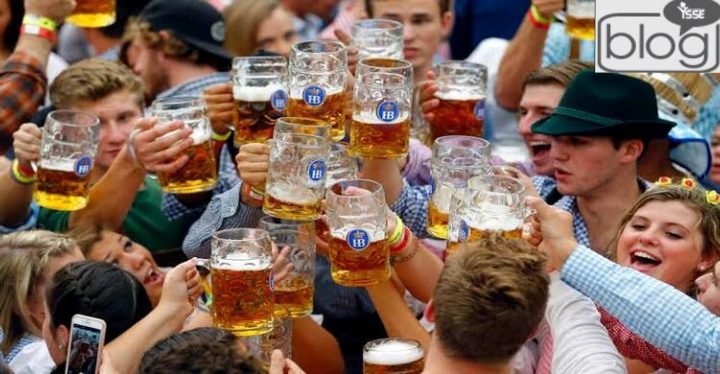Germany is renowned for its rich history, picturesque landscapes, and vibrant cultural celebrations. Among its many cherished traditions, Oktoberfest stands out as a truly unique and internationally acclaimed event. This magnificent German festival stands as the largest beer festival on the planet, drawing millions of visitors from all corners of the globe to join in the merriment.
Every year, millions of people flock to Munich, the heart of Bavaria, to join Oktoberfest. Spanning over two weeks of joyful revelry, Oktoberfest offers a captivating blend of tradition, entertainment, and, of course, plenty of world-class beer. In this blog, I’m going to dive into the origins, highlights, and cultural significance of this beloved German festival.
The origins of Oktoberfest can be traced back to October 12, 1810, when Crown Prince Ludwig I married Princess Therese of Saxony-Hildburghausen. To celebrate this royal wedding, the citizens of Munich were invited to attend festivities held on the fields in front of the city gates. The celebrations were so well-received that they became an annual event, eventually evolving into the grand festival we know today.
Over the years, Oktoberfest has grown in size and popularity, attracting visitors from all corners of the globe. What started as a local celebration has now become a global phenomenon, symbolising the rich Bavarian culture and German beer-making traditions.
Oktoberfest kicks off with a grand opening ceremony featuring the ceremonial tapping of the first keg by the Mayor of Munich saying “O’zapft is!” (It’s tapped!), marks the official start of the festival. Following the ceremony, a colorful parade happens through the streets of Munich with horse-drawn beer wagons and marching bands, creating a festive atmosphere.
Oktoberfest is synonymous with beer, and the festival showcases the finest brews from Munich’s six major breweries: Augustiner, Paulaner, Hacker-Pschorr, Hofbräu, Löwenbräu, and Spaten.
Each brewery hosts a large beer tent, capable of accommodating thousands of enthusiastic visitors. These tents are a focal point of the festival, offering a lively ambiance, traditional Bavarian music, and, of course, copious amounts of beer. Musicians in colourful outfits fill the beer tents, entertaining crowds with lively performances that inspire people to sing, dance, and immerse themselves in the festive spirit.
Beyond beer, Oktoberfest is also about mouthwatering Bavarian delicacies. From pretzels and sausages to roast chicken and sauerkraut, the festival provides a rich culinary experience. Visitors can savor hearty traditional dishes while immersing themselves in the authentic flavours of Germany.
The colourful traditional attire makes Oktoberfest more festive. Women don charming dirndls, which consist of a bodice, blouse, full skirt, and apron, while men don the classic lederhosen, leather shorts often paired with suspenders. Visitors are also encouraged to embrace the traditional outfits
Beyond the joy and merriment, the festival showcases the strong sense of community and togetherness. It serves as a platform for locals and visitors alike to come together, forge new friendships, and celebrate the rich heritage of Bavaria. Oktoberfest also provides an economic boost for the region, attracting tourists and supporting local businesses.
Oktoberfest represents the essence of German culture. It offers a unique blend of history, entertainment, and celebration that is truly unforgettable. As visitors raise their beer steins in joyful camaraderie, surrounded by vibrant energy and lively music, Oktoberfest creates lasting memories and fosters a sense of unity among people from diverse backgrounds.
So if you are a lover of cultural experiences, or simply seeking a vibrant and memorable event, Oktoberfest in Germany is an absolute must-visit. While experiencing the magic of Oktoberfest, you can immerse yourself in German culture, taste exceptional brews, indulge in delicious food, and create lifelong memories.
To read more blogs #click here.
Writer,
Muhammed Mahadi Hasan
Intern
Content Writing Department, YSSE

